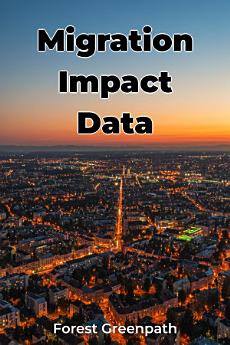Migration Impact Data
About this ebook
The book progresses systematically, starting with an overview of migration statistics and moving to an analysis of its demographic consequences and the effectiveness of current policy responses. For example, the book carefully evaluates policy successes and failures in areas like labor market integration and border management. It emphasizes the importance of understanding migrants' age, skills, and geographic distribution for effective policy-making. This comprehensive exploration provides a useful resource for policymakers, researchers, and anyone seeking to understand the socio-economic and political dimensions of modern migration.
The book uniquely connects migration patterns to economics, sociology, and political science, revealing how migration influences electoral outcomes and the rise of populist movements. By combining rigorous statistical analysis with qualitative insights, Migration Impact Data delivers an evidence-based assessment that informs debates surrounding asylum policies, integration strategies, and social cohesion. Its focus on EU immigration and non-EU migration makes it a valuable tool for understanding the realities and challenges of migration in Europe.








